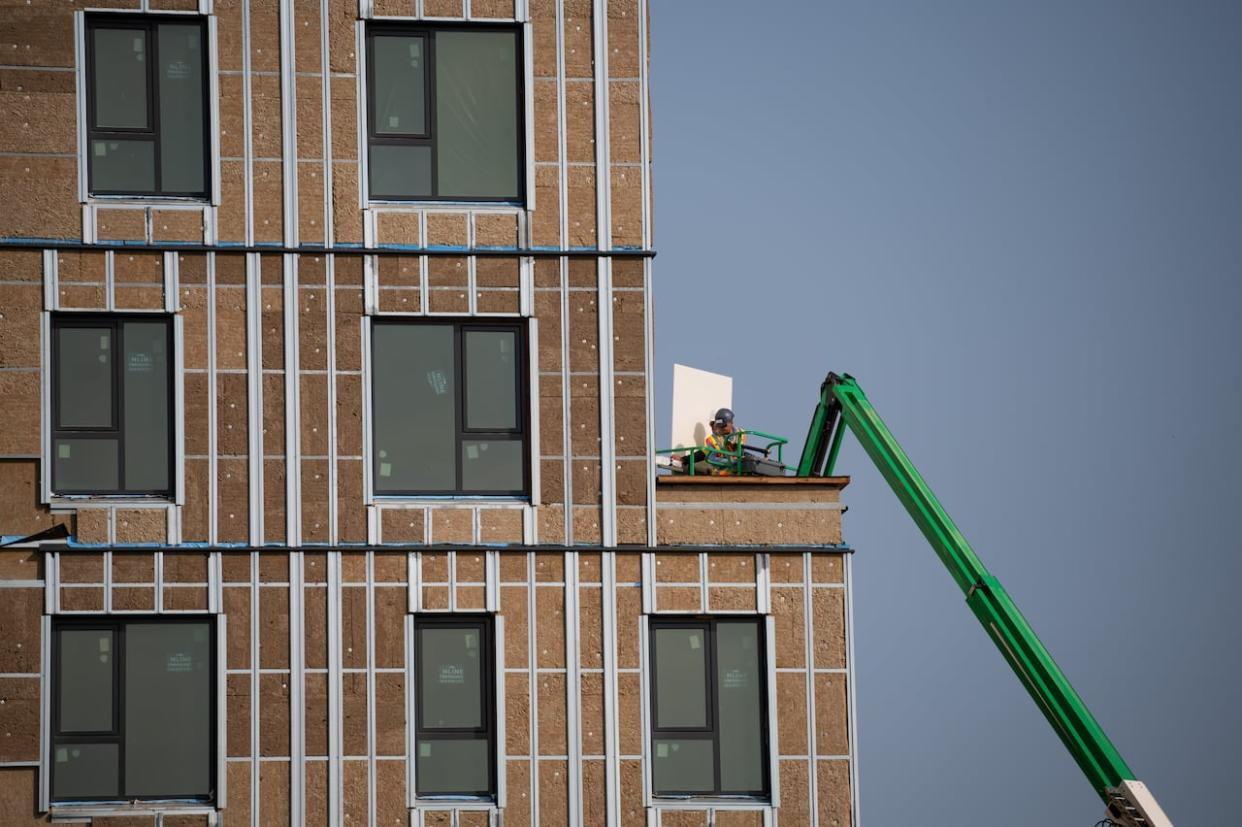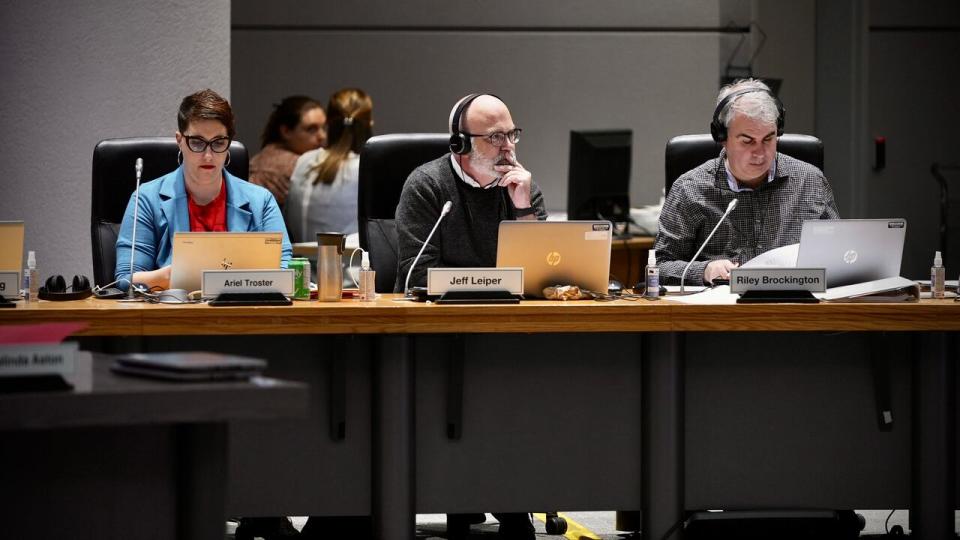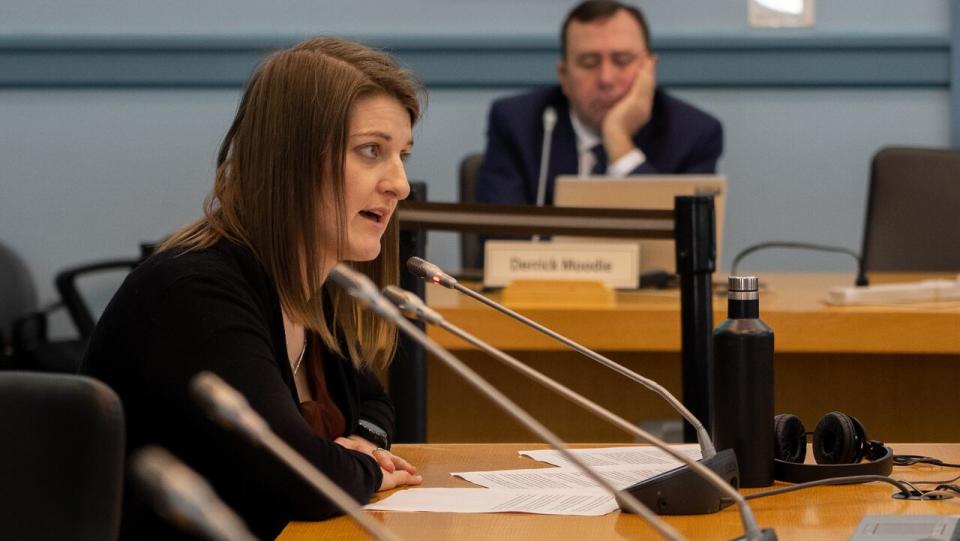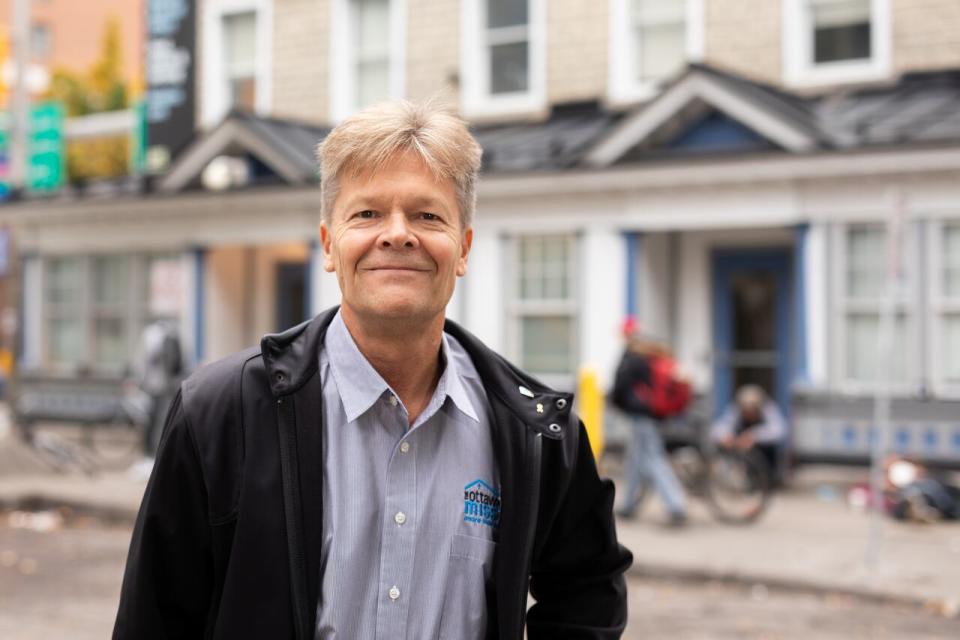Spend more, build more? City ups affordable housing budget but needs outside funds

The City of Ottawa will spend nearly 50 per cent more on building new affordable housing next year, but the budget increase won't necessarily result in more units hitting the market.
First, the federal and provincial governments need to sign on.
It's been two and a half years since staff first released the long-range financial plan for housing, which included a $15 million municipal contribution and a plan to work with other level governments to build at least 500 affordable units a year.
It didn't take long for that plan to prove unattainable.
Ottawa did not meet its annual target in 2021 or 2022, because it couldn't lock in the outside funding it needed. It raised spending by $1 million this year, but funding from other levels of government still hasn't followed suit.
The money itself is also no longer stretching as far, deputy treasurer Isabelle Jasmine explained to councillors at Wednesday's planning and housing committee meeting.
"Some of the key financial assumptions that have changed since 2021 include the cost of construction, which has increased by 25 to 35 per cent since 2021," she said.
Inflation has also decreased the city's borrowing power by 22 per cent, "essentially increasing the amount of cash contribution required." The new vacant unit tax has helped offset the shortfalls, she noted.
Several councillors argued that the way to convince other levels of government to commit more dollars is to raise the municipal contribution even higher as leverage — an idea that finance staff weren't enthusiastic about.
Now, the city plans to spend $23.8 million next year, but the plan relies on equal contributions from the province and the feds.
Nearly 1,800 unfunded units in pipeline
The 12-member committee sent the department's budget on to next Wednesday's council meeting, with two councillors dissenting on the affordable funding portion: Somerset ward Coun. Ariel Troster and Beacon Hill-Cyrville ward Coun. Tim Tierney.
Troster considered introducing a motion to increase spending for 2024 from $23.8 million to $30 million, but opted to hold off for now.
"To me, a neat doubling of what the commitment was in the original long-term financial plan shows a level of ambition beyond what the city has ever done," she said.

Somerset ward Coun. Ariel Troster, left, wants the city to be more ambitious with its spending for affordable housing. (Felix Desroches/CBC)
She pointed to the 1,794 planned units that remain in the pipeline, but unfunded, with a combined price tag of $370 million.
"My goal is to see every one of those ... funded this term. That would be meeting the scale of the crisis we're dealing with."
Troster argued a point made earlier by several housing advocates, that showing a stronger commitment could push the federal government to pull the trigger on the city's Housing Accelerator Fund application.
Housing advocates illustrate level of crisis
People who work with low-income renters and shelter users applauded the city's move to increase its annual spending on affordable housing capital projects, but urged councillors to push for even more.
"I think it is an incredibly positive thing that we saw today," Kaite Burkholder Harris, the executive director of the Alliance to End Homelessness Ottawa, told CBC. "But I also would welcome council to be even more ambitious, because we're out of time."
Burkholder Harris pointed to other market issues, including a lack of qualified labour.

Kaite Burkholder Harris, executive director of the Alliance to End Homelessness Ottawa, presents to councillors on Wednesday. (Francis Ferland/CBC)
Cities across the province are struggling to address legislative changes that force them to speed up approvals while getting less money through development charges.
But she also said this is a rare moment where every level of government shares a common priority.
"We have an opportunity," she said. "Let's not plan for the crisis only, but look ahead and say, 'where do we want to be in five years?'"
Burkholder Harris elicited shock from many councillors when she presented new research from housing expert Steve Pomeroy, which suggests affordable units are disappearing from the market faster than they can be built.
For every new apartment released onto the market from 2011 to 2021, Pomeroy found, Ottawa lost 31 units priced at below $1,000 per month. That includes rentals that were demolished or renovated, moved to the short-term rental market, or simply relisted at a higher cost.
Packed shelters highlight crisis
At the other end of the spectrum, Ottawa Mission CEO Peter Tilley painted a picture of how a lack of affordable units is adding unprecedented strain to the shelter system.
"We have 25 to 30 people at night, sometimes more in the waiting area, sometimes waiting six or seven days for a mat or a bed ... It's never been that busy with overcapacity," he told CBC.
Without a spot to curl up, many resort to sleep sitting on foldable chairs.

Ottawa Mission CEO Peter Tilley said the city is doing its part on affordable housing and other levels of government need to step up. (Arthur White-Crummey/CBC)
The proposed increase in funding is "huge," Tilley said, emphasizing that many people who rely on the Mission — and especially asylum seekers — could immediately move into a new home without any support.
"It's not on the city so much as the other levels of government," Tilley argued. "The federal government hasn't had a plan to integrate these people into Ottawa, into Canadian society. So, we're all picking up the slack."
Mayor pledges to continue funding pleas
Housing committee chair Jeff Leiper said he had been tempted to push for more housing funding, but is convinced the staff have shaken loose all possible savings and diverted them to addressing this issue.
Mayor Mark Sutcliffe feels the same.
"The population of Ottawa is growing very, very rapidly and I think the whole conversation around housing has changed," he said outside his office. "We're facing pressures, but I think we have solutions."
Since taking office, Sutcliffe said he's come to realize that building relationships with other levels of government is one of his most important jobs.
"We can't do this alone. We need our partners in the federal and provincial governments," he said. "And we've had numerous conversations with the federal government in particular."


